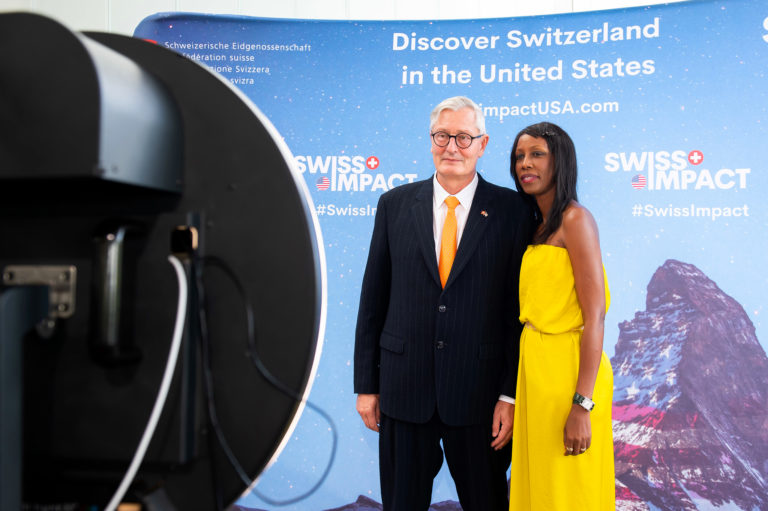
Wealthy Switzerland, famous for its bank secrecy laws and reputation as a haven for laundered cash, has a message for criminals and narcotraffickers: Your assets are no longer welcome here.
So says Jacques Pitteloud, Switzerland’s ambassador to the United States, citing his country’s ongoing compliance with the Financial Action Task Force (FATF)—a Paris-based watchdog that leads global efforts to fight money laundering and the financing of terrorism.
“After the banking crisis of 2008, Switzerland decided it would abide by the rules of the OECD [Organization of European Cooperation & Development] and FATF,” he said. “Of course, it’s difficult to shake off an image that’s been cemented over the decades, but the fact is that Switzerland now participates in the exchange of banking information. Our level of compliance is now actually higher than that of the American banking sector, according to the FATF.”
Pitteloud spoke to the Washington Diplomat on Sept. 27 in a lengthy Zoom interview to mark the 175th anniversary of Switzerland’s first federal constitution—which took effect in 1848 and laid the foundations for the establishment of the Swiss federal state.
“Right now, if I were a dictator or drug dealer trying to hide money, I would not put it into the Swiss banking sector, because we don’t hide anymore. Bank secrecy is a thing of the past,” said Pitteloud. “It would also be very stupid because the IRS would know about it immediately.”
Proof of the banking sector’s resilience, he said, is that even after the repeal of Switzerland’s time-honored financial secrecy laws, “people keep putting their money in Swiss banks.”
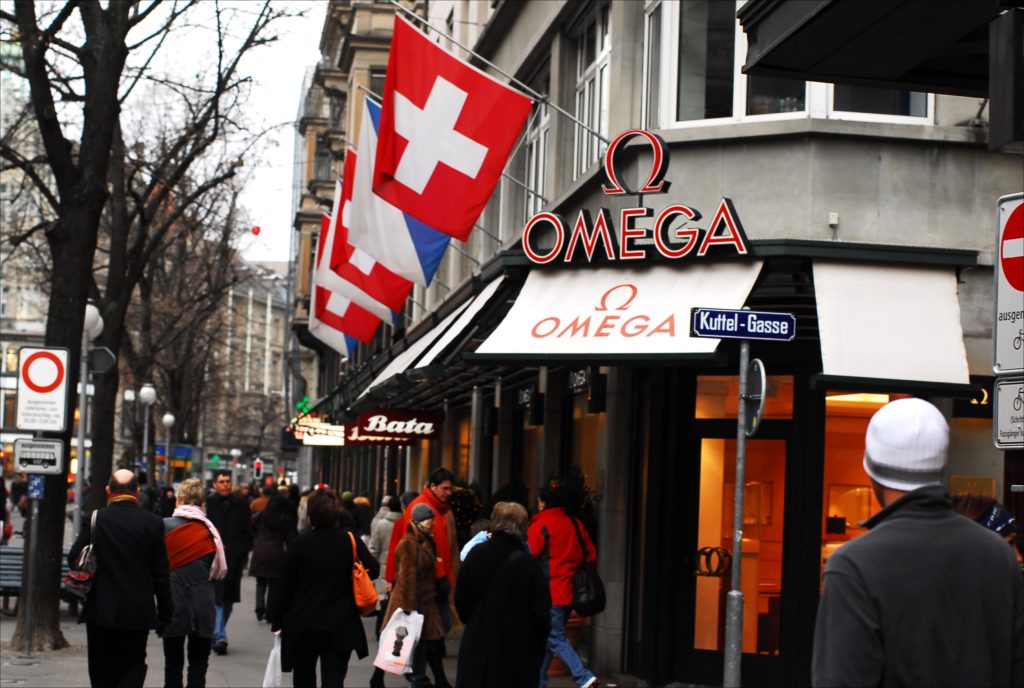
The reason: Switzerland’s political and monetary stability, its superior medical system and its famously discreet private schools.
“We are doing pretty well in that regard,” he said. “We are probably not yet the best or the cleanest, but we are definitely among the jurisdictions with the most compliant banking laws.”
Yet more can be done. In late August, the Federal Council of Switzerland put forth legislation to strengthen anti-money laundering efforts by obligating attorneys to conduct due diligence. It also seeks the creation of a centralized, non-public register of beneficial owners, as well as new measures concerning sanctions violations, real estate transactions, and precious metal traders.
That would supplant existing laws that exempted attorneys from reporting suspect transactions.
“This exception was made in the name of the lawyer-client privilege,” he said, pointing out that more and more people are demanding a closing of this loophole. “Personally, I thought this was problematic, and I’d be happy to see these loopholes closed.”
Switzerland’s new banking giant ‘too big to fail’
A much bigger, more urgent crisis for Pitteloud has been the recent upheaval in Switzerland’s financial sector.
In mid-June, United Bank of Switzerland (UBS) completed its emergency takeover of Crédit Suisse, buying its rival for a bargain 3 billion Swiss francs ($3.25 billion) “in a rescue orchestrated by Swiss authorities to avert a banking sector meltdown,” as CNN put it.
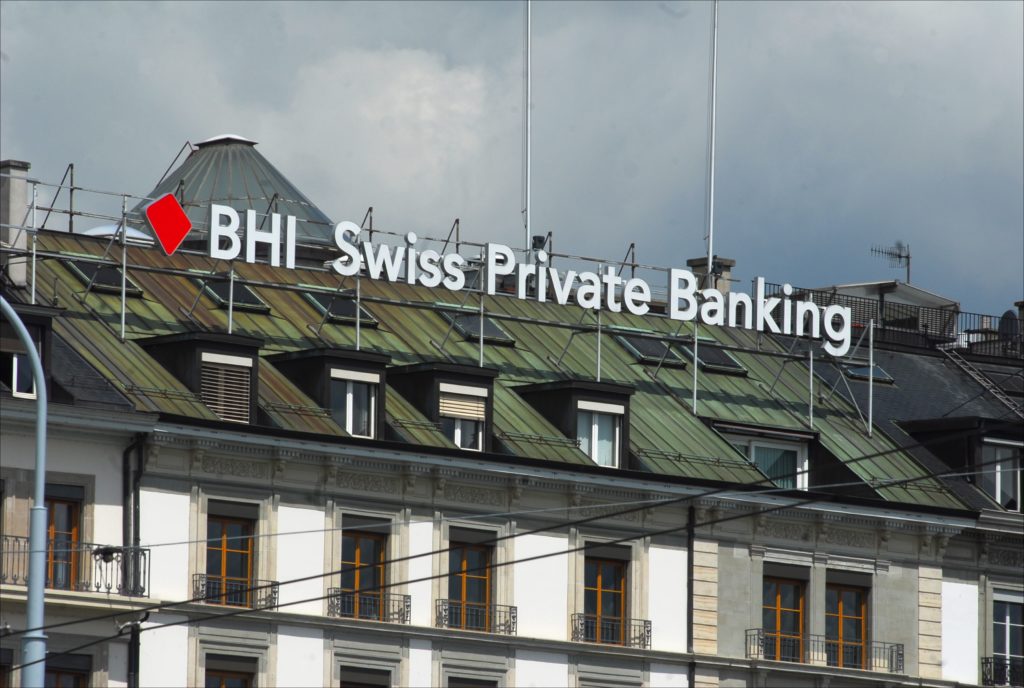
The deal creates a Swiss banking giant with $1.7 trillion in assets, which is more than twice the size of Switzerland’s GDP of $842 billion at the end of 2022. It followed the collapse of two California financial institutions—Silicon Valley Bank and Signature Bank—and has already triggered a lawsuit by investors against the Swiss financial regulator for imposing losses of up to 9 billion Swiss francs ($10 billion) on them.
Even so, argues Pitteloud, the UBS takeover averted “not just a Swiss problem, but a global problem” that had set off alarms in Washington as well as Berne.
“It has demonstrated the ability of the Swiss government and private sector to deal with this crisis, [though] in a way that might not have been totally satisfactory to everyone,” he said. “You have to make decisions in an emergency, and that weekend, there was indeed a serious risk of destabilization. Everyone was horribly worried about a repeat of 2008. There was a banking crisis in California and rumors about another major European bank said to be wobbling.”
Basically, Pitteloud explained, it was a matter of finding a quick—if not perfect—solution to stabilize world financial markets before the opening bells in New York, London and Tokyo.
“Imagine, we had 72 hours to negotiate a takeover of Switzerland’s second-largest bank—and one of the major banks of the world—without having time to do all the due diligence. It was a tough weekend,” he said. “Personally, I am extremely proud of the way our Finance Ministry steered the whole crisis. On Monday morning, the markets opened, and there was no meltdown.”
He added: “The bank is much too big to fail, and that does cause a long-term problem. But one problem at a time; later on, we can figure out how to deal with a bank that’s too huge.”
Horrors of 1994 Rwanda genocide left Pitteloud ‘shellshocked’
Pitteloud, 60, has a rather unusual background as a diplomat.
Born in Zürich, he earned a master’s degree and later a doctorate from the University of Zürich Law School. After joining the Swiss Foreign Service in 1987, his first overseas assignment was as trade attaché in Riyadh, Saudi Arabia.
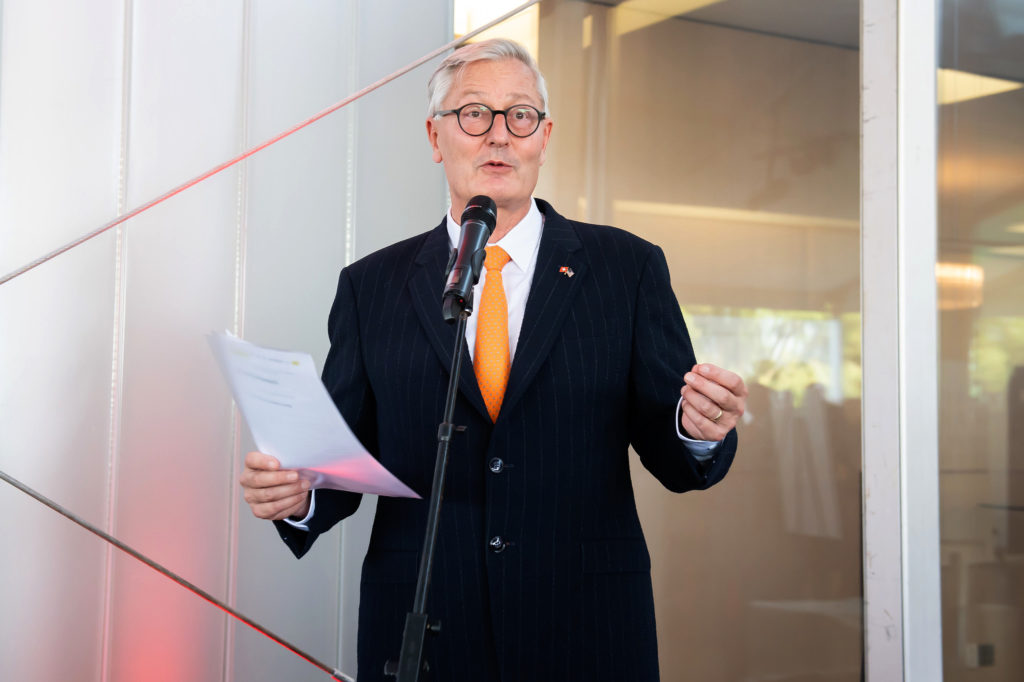
During a subsequent assignment with the Swiss Strategic Intelligence Service, he witnessed the 1994 Rwanda genocide, in which more than half a million ethnic Tutsis were murdered by armed Hutu militias over a 100-day period.
“I was so shellshocked, it was like having been a witness to the Shoah,” he said, invoking the Nazi genocide of six million Jews during World War II. “It will never leave me. I saw things no one should see. After going back to Switzerland, I decided to do something about it. I was better at hunting criminals than doing NGO work, so I created an NGO that would go after these criminals and bring them to justice.”
In the end, Pitteloud won the convictions of five war criminals; two were sentenced by Swiss courts, and three by the International Criminal Tribunal for Rwanda (ICTR) in Arusha, Tanzania.
“It was my way of contributing to international justice for the victims,” said Pitteloud, whose Rwandan-born wife, Angelique, is a survivor of the genocide, as well as producer of the 2016 documentary “Who Am I,” which received warm reviews at the Rotterdam International Film Festival as well as Montreal’s African Film Festival.
Among other things, Pitteloud led Switzerland’s delegation to the International Holocaust Remembrance Alliance, during which time he met with elderly Jewish Holocaust survivors living in Switzerland.
“They met once a month at a dreary little coffee shop in Zürich, but we had never managed to convince them to write about their experiences,” Pitteloud told the Diplomat. “They were not willing to talk. So one day I visited these people with numbers tattooed on their arms, and I told them about Rwanda, that there were already people denying the reality of the Rwandan genocide. I told them, ‘we need your testimony.’”
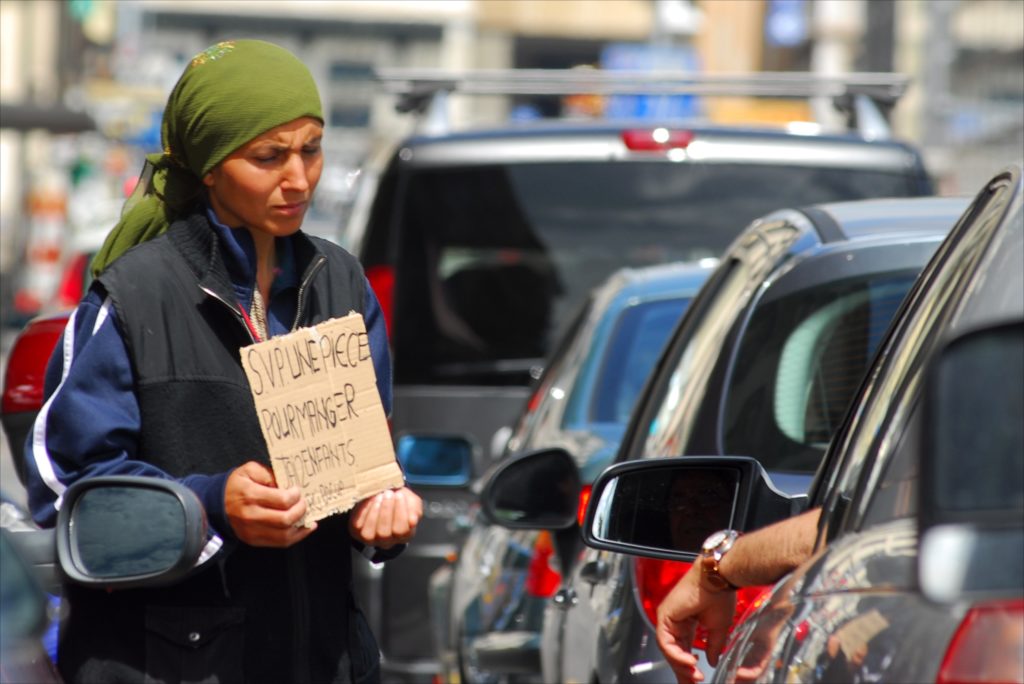
In the end, he said, the elderly survivors agreed; a series of 12 books of testimony was eventually published, in German. He said it was a “humbling experience” and one of the most emotionally charged moments of his life.
Pitteloud also directed arms control, disarmament, security policy and intelligence at the Foreign Ministry in Bern. From 2010 to 2015, he was Switzerland’s ambassador to Kenya, with responsibility also for Rwanda and Somalia. After that and until his current job, Pitteloud was director-general of the Swiss Federal Department of Foreign Affairs, overseeing a $3 billion budget. Fluent in French, English, German, Italian and Spanish, Pitteloud is also a passionate bird photographer, and his photos have been published widely.
Decision by referendum a Swiss tradition
On the surface, it would seem that the Swiss have little to worry about. A mountainous, landlocked country in the heart of Europe, Switzerland’s 8.6 million inhabitants enjoy a high standard of living virtually unmatched anywhere else. Two of its leading cities, Zürich and Geneva, regularly make the list of the 10 most livable cities on Earth.
With a per-capita income of around $95,000, Switzerland is one of the world’s wealthiest nations. If it were a US state, its economy would rank as the seventh largest, right behind Pennsylvania and just ahead of Ohio. Inflation is currently running at only 2.8%, about a third of that of the European Union, of which it is not a member.
As it has for the sixth time, Switzerland once again took the top spot in US News & World Report’s annual ranking of the world’s best countries. The 2023 list, based on a survey of more than 17,000 people and their perceptions of 87 countries, gave Switzerland particularly high marks for safety, economic stability, openness for business, quality of life and cultural influence.
In the past 10 years, Swiss multinationals have poured $300 billion into the United States. They now employ 750,000 Americans in all 50 states—in aerospace, robotics, power generation and pharmaceuticals. In fact, the US has overtaken Germany as Switzerland’s biggest trading partner and now represents 18% of its total foreign trade, which is double that of China.
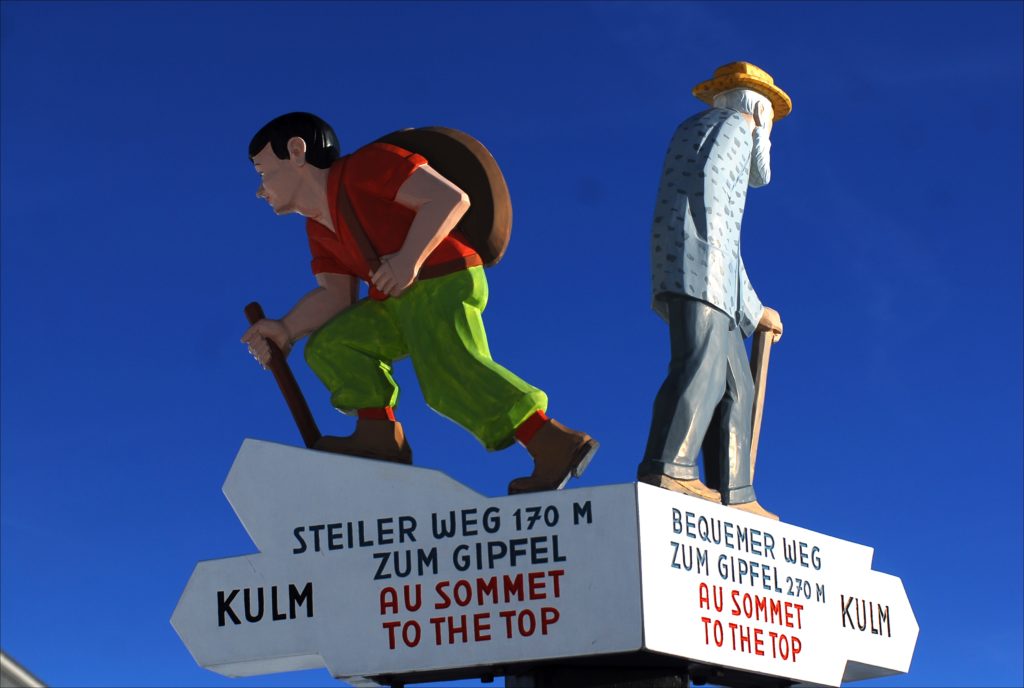
“There is more to the Swiss economy than banking, chocolate and watches,” he said. “The wealth of Switzerland derives largely from its incredibly powerful industrial sector.”
In fact, banking and insurance account for about 12% of Swiss GDP, though manufacturing is far more important. Pharmaceuticals alone generate 5% of total output and account for half of annual exports—more than Swiss chocolate, cheese and watches combined. Centered on the region of Basel, the industry boasts two of the world’s leading drugmakers: Roche and Novartis.
But that’s not all, Pitteloud said.
“Not a single American spacecraft leaves US territory without a piece of Swiss technology in it, from the James Webb Telescope to the Mars rover, whose helicopter was built in Switzerland,” he said. “More and more, our manufacturers are catering to the very specific needs of high-tech companies.”
However, social issues still divide the Swiss people.
In September 2020, 62% of voters in a nationwide referendum rejected a proposal backed by the far-right Swiss People’s Party that would have curbed immigration by ending an accord with the EU allowing the free movement of people. And in July 2022, nine months after a nationwide referendum supported by nearly two-thirds of voters, the country legalized same-sex marriage.
Yet in a 2009 referendum, 57% of voters supported a ban on the building of minarets atop mosques—provoking accusations of Islamophobia from the Geneva-based UN Human Rights Council and several foreign governments.
“There was a feeling in certain political circles that militant Islam was growing into a serious threat, and that it would be nice to limit its visual aspects. The Swiss government advocated ‘no’ to the initiative, but the people said ‘yes,” he explained—comparing the referendum to Brexit.
“If you don’t want to hear their answer, then don’t ask them,” Pitteloud concluded. “But we believe in asking the people their opinion, and sometimes, they answer in a way that we are not totally happy with. This is the price one has to pay for democracy.”
This post was originally published on this site be sure to check out more of their content.








